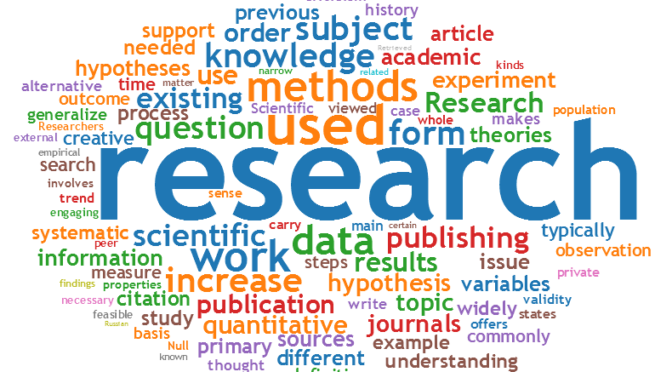WHEN you apply for a research degree, like a PhD, you are asked to write a research proposal as part of your application. The aim of the proposal is to convince others that you have a worthwhile research project in your chosen field, and that you also have the competence and a proper work-plan to complete it. Whatever the field of research, a proposal must address the following questions: what you plan to accomplish, why you want to do it and how you are going to do it. The quality of your research proposal is very important, as badly written proposals are usually rejected. The quality does not depend only on what your proposed project is, but also on how it is written. So, it pays if your writing is coherent, clear and compelling.

Sometimes you are provided with the format in which the proposal has to be written, at other times you are not. In the latter case you have to know how to write a good research proposal. There is no set way, or any hard and fast rules on how to write it, but generally a good research proposal consists of the following sections:
Title:
The title should be concise, descriptive, informative, and if possible a little catchy – one that will prick the interest of the reader. Avoid words that add nothing to the meaning, such as “Research on…..”, “Studies on…..” etc.
Abstract:
This should give a quick overview of the proposal. It should summarize the whole project – the research question, the rationale for the study, the hypothesis (if any), the methods (including design, procedures, and the instruments to be used) and the main findings.
Introduction:
The introduction of a proposal should begin with a capsule statement of what is being proposed and then should proceed to introduce the subject. It should generally cover the purpose of your study, why you consider it to be important, the major issues you intend to cover, the dependent and independent variables involved, and your hypothesis if any. How to write all this depends a lot on your creativity and your understanding of the subject. The important thing is that it should be comprehensible to a layman so that he is able to place it in a context of common knowledge.
Literature Review:
Here you have to enumerate literature sources on your research topic. The intention is to demonstrate your knowledge of the subject and the issues involved, your ability to evaluate relevant literature information, and convince your reader that your research will fill the gap in the literature of your research field. Remember to organize it well and to include influential sources and documents.
Methodology:
In this section, you should explain how you will conduct your research in as much detail as possible. If you will consult others (such as a statistician, an ethnographer, or a librarian) explain what role they will serve and how you hope they will enhance your development of an appropriate methodology for the project. Discuss the kinds of sources you hope to consult, the methods of research you will use – qualitative (interviews, questionnaires) and quantitative (statistics, stuff that deals intensively with numbers)– to extract and process the information in as much detail as is possible.
Conclusion:
Shortly recap all that you have written above, stating why your research is important, why it advances knowledge, and why it is worth researching.
Timeframe:
Here you have to give the approximate time you need for your research.
Main Points:
Just keep these points in mind while writing your proposal:
- Include all the above sections.
- Stay focused on your research topic.
- Develop a coherent and persuasive argument for your proposed research.
- Cite major studies in the field.
- Present theoretical and empirical contributions by other researchers.
- Keep the length moderate – not too long, not too short.
Other Writing Guides:
- Business Letter Writing Guide
- Business Letter Samples
- Resume Writing Guide
- Cover Letter Writing Guide
- Essay Writing Guide
- Business Proposal Writing Guide
- The Difference between Formal and Informal Writing
- Paraphrasing versus Summarizing
- The Difference between Copy Editing and Content Editing
Home > Articles/Guides > Research Proposal Writing Guide